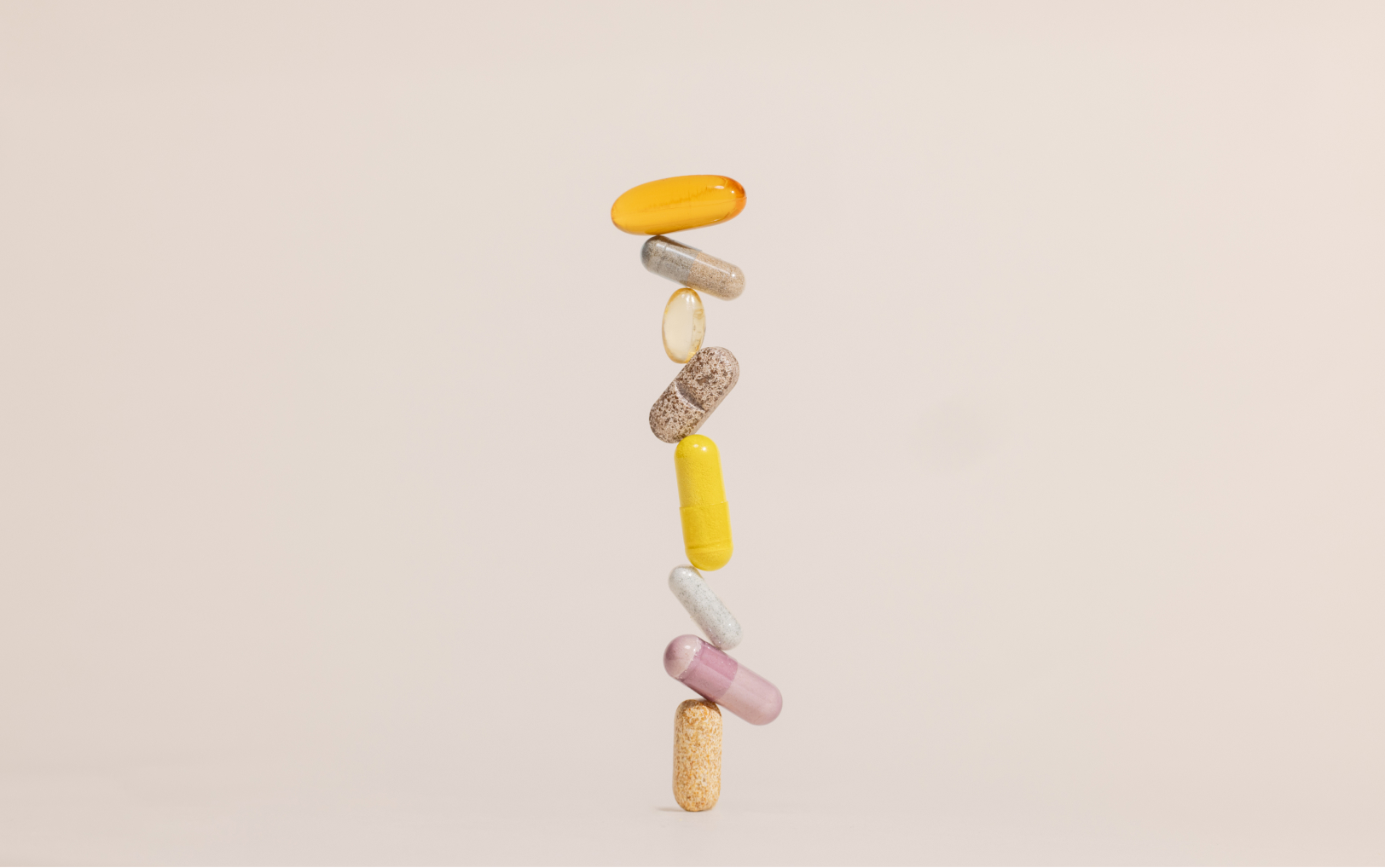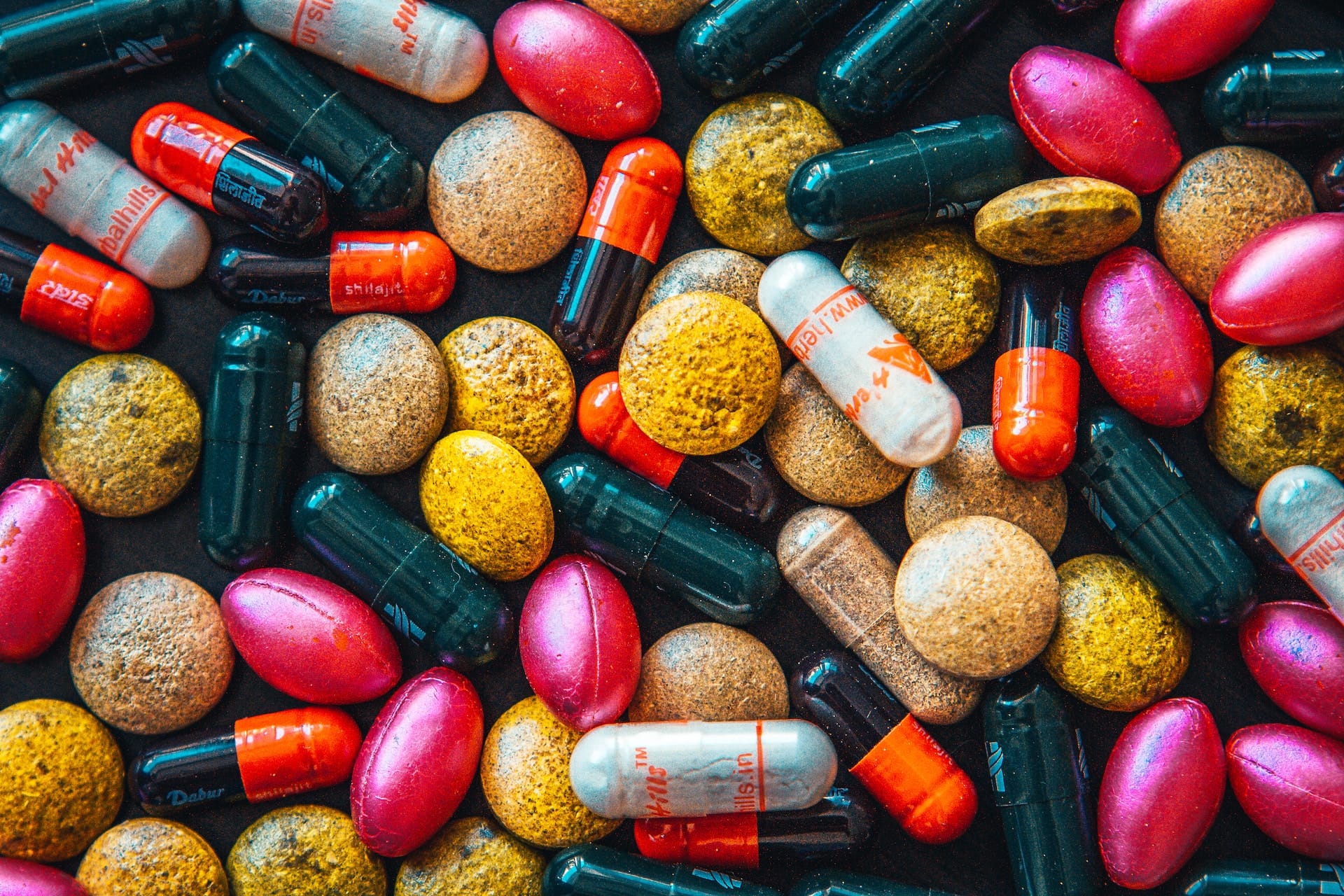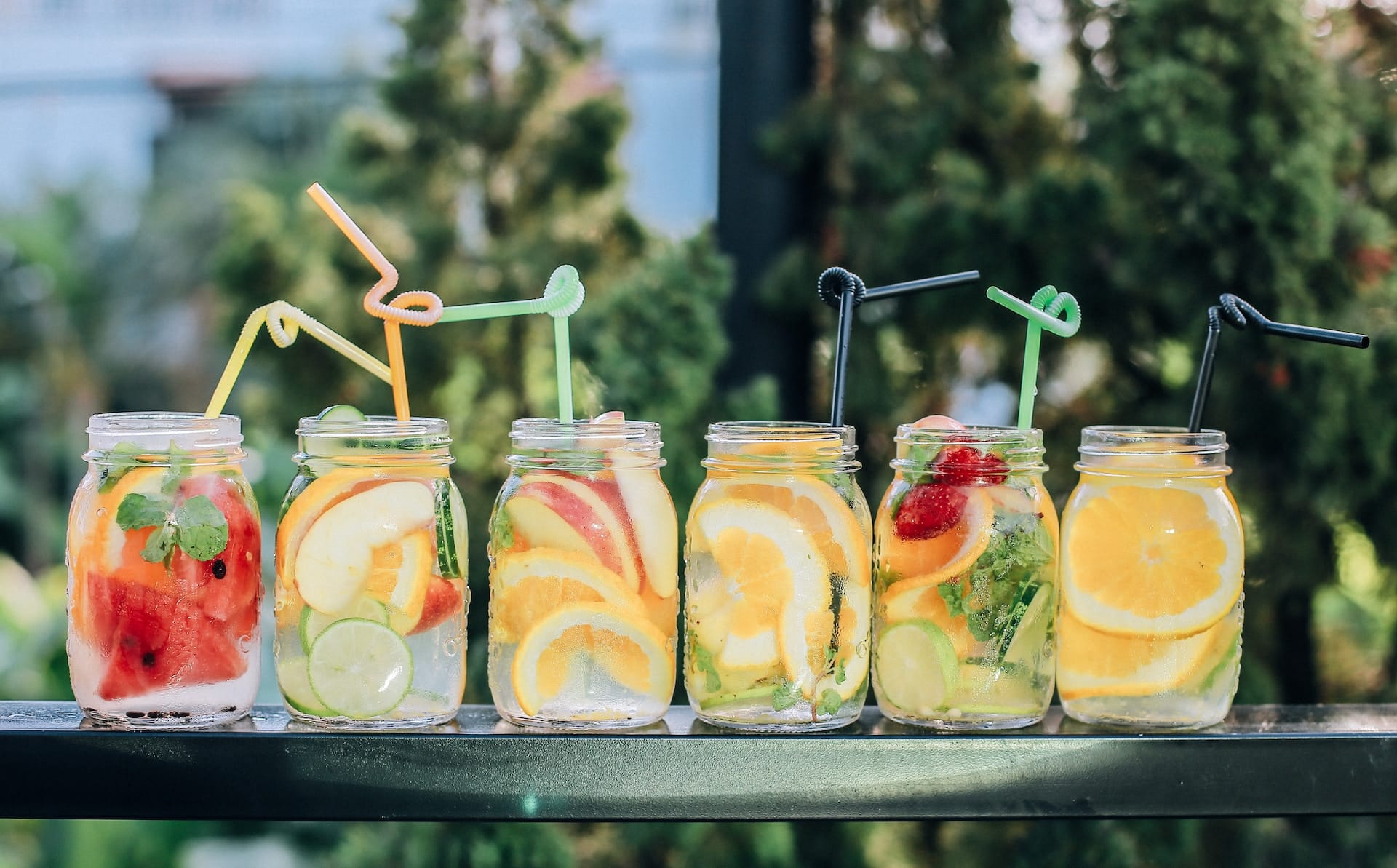WHAT VITAMINS & SUPPLEMENTS SHOULD YOU TAKE


Still wondering what vitamins you should take?
Almost everyone has some experience with vitamin supplements, even if the last ones you took were shaped like a cartoon family. However, with thousands of products on the market, the process of choosing the right vitamins and supplements can be overwhelming. The process is made even more complicated by contradicting information and misleading advertising. You know there is a way to improve your long-term health, but how can you make sure you are taking the right vitamins and supplements?
The key is to know what essential vitamins and nutrients to look out for, to carefully assess your diet, and to consider how your lifestyle and long-term health goals come into play. Remember that vitamins and supplements are not meant to replace a healthy diet. Beyond nutrients, fresh fruits and vegetables provide antioxidants, phytochemicals, and fiber, all of which are important.
“The key is to know what essential vitamins and nutrients to look out for, to carefully assess your diet, and to consider how your lifestyle and long-term health goals come into play.”

Why Are Vitamins Important?
At the most basic level, vitamins are essential organic substances your body’s cells require to function, grow, develop and heal properly. (In this context, “organic” means they contain the element carbon.) There are 13 “essential vitamins”: vitamins A, C, D, E, K, and the B vitamins, B6, B12, biotin, folate, niacin, pantothenic acid, riboflavin, and thiamine. Choline and carnitine were recently added as vitamin-like nutrients that the body needs, so technically there are now 15 essential vitamins. A major unaddressed deficiency in any one of these vitamins could lead to potential health problems.
Essential Vitamins and Minerals Together, the essential vitamins and minerals make up the total micronutrients required for proper functioning of the body. We’ll examine the benefits of these nutrients and how to get enough.
Vitamin A
Vitamin A is a fat-soluble vitamin in foods either as preformed vitamin A (retinol and retinyl esters) or provitamin A carotenoids (like beta carotene). Preformed vitamin A is already in the right biological form while carotenoids need to be converted to retinol in the body.
VITAMIN B-12
Vitamin B12 is perhaps best known for its role in converting food into energy. It can also support cognitive and nervous system health and is involved in red blood cell formation. Vitamin B12 is naturally found in the diet only found in animal products but may also be found in foods fortified with the vitamin. Those eating a plant-based diet (such as vegans and vegetarians) require supplementation or eating enough fortified foods to prevent vitamin B12 deficiency.
Vitamin C
Vitamin C is a water-soluble vitamin that is also an antioxidant, which means it can help manage oxidative stress that plays a causal role in various health conditions. It is needed for collagen production and to help manage oxidative stress that can impair collagen formation. Vitamin C also improves the absorption of nonheme iron, the form of iron in plant-based foods, and plays an important role in immune function.
Vitamin D
Vitamin D is considered a nutrient of public health concern since a large portion of the U.S. population is deficient in the vitamin. It can be challenging to get enough from foods and sun exposure alone. Environmental factors like pollution, location (distance from equator), use of sunblock (blocks UVB rays which are needed for vitamin D production), pigment of skin (more melanin present can make it more challenging to absorb UV rays), and season impact vitamin D levels.
Vitamin E
Vitamin E is a fat-soluble vitamin made up of 8 different molecules (such as tocopherols and tocotrienols). This vitamin doubles as an antioxidant that can help manage oxidative stress. In supplements, it can be found alone, in multivitamins, or added as an ingredient to help maintain freshness due to its antioxidant properties. A 2020 randomized control trial on the use of vitamin E along with vitamin C and raspberry leaf extract showed positive results in supporting skin appearance including anti-aging effects.
Vitamin K
Vitamin K consists of two types: K1 (phylloquinone) and K2 (multiple types of menaquinones). K1 is the main dietary form of vitamin K and is present mainly in green leafy vegetables. K2 is mainly produced by bacteria in the gut and is also present in small amounts in animal-based foods and fermented foods.
Vitamin K plays various roles in the body, including involvement in blood clotting and bone metabolism. The K2 type is often combined with vitamin D, like in our Calcium Plus supplement to support bone health, since the two vitamins work together synergistically. The RDA for vitamin K is 90-120 mcg.
Calcium
Most people associate calcium with strong bones and teeth, for which it is definitely needed, but it also has other important functions in the body. Calcium helps the heart and other muscles contract, aids in nervous system function, and supports the release of hormones and enzymes, andsupports bone health.
Iron
One of the primary functions of iron is to help transport oxygen in the blood. Four atoms of iron reside inside each molecule of hemoglobin, which can bind up to four molecules of oxygen. A similar molecule called myoglobin also uses iron to provide oxygen inside muscle cells and connective tissue.
Zinc
Zinc is an essential mineral for immune system function, wound healing, and DNA synthesis and repair. Part of its immune support occurs in zinc’s role in maintaining a healthy intestinal barrier. Good food sources of zinc include oysters, which have the highest amount of zinc, as well as other shellfish, beef, liver, nuts and seeds, and dairy.
Magnesium
Magnesium is known to be involved in over 300 processes in the body. It is an essential mineral in bones and muscle function and recovery. Alcohol consumption can deplete levels of magnesium and other electrolytes. Magnesium can also help manage PMS symptoms by managing prostaglandin levels, relaxing the uterus, and supports muscle health and recovery.
Folate (Vitamin B9)
Folate, also known as vitamin B9, plays a vital role in DNA synthesis and cell division, making it essential in pregnancy for fetal development and neural tube formation. It is also required in red blood cell production. Like all B vitamins, folate also helps with converting food into energy.
Food sources of folate include dark leafy greens, asparagus, broccoli, beef liver and lentils. Folate can also be found in B complex supplements, multivitamins and prenatals. Look for the active form as methylated folate rather than the synthetic folic acid form.
THINGS YOU MAY NOT KNOW: Vitamin and mineral supplements can be dangerous Proper balance and adequate levels of essential nutrients is important for a range of complex processes in our body. When vitamins are taken as supplements, they are introduced into the body at levels that could never be achieved by eating even the healthiest of diets.
THINGS YOU MAY WANT TO SAVE: YOUR POCKETBOOK? SHOP FOR FRESH FOODS AT LOCAL AND FARMERS MARKETS.
ZENTRAVELER SAYS: FORGET ABOUT TAKING VITAMINS & SUPPLEMENTS: EAT HEALTHY AND YOUR BODY WILL THANK YOU? Americans are projected to spend $35.6 billion on dietary supplements. That’s a lot of money for products that show little, if any, evidence of benefits.

"The thinking is that taking these pills can somehow improve your health or protect you from disease," says Dr. Pieter Cohen, associate professor at Harvard Medical School and general internist at Harvard-affiliated Cambridge Health Alliance. "While some people may need specific vitamins or supplements to help with deficiencies, for the average healthy person, following a diet with plenty of fruits and vegetables provides all the essential vitamins and minerals."
From here to Infinity is a relatively short ride! The next leg takes eons and eons as you fly through the Barycentric Dynamical Time Zone! …and on and on and on. Follow the Zentraveler Newsletter often for Travel, Health and Zen-like stories and such. Where else can you get a THREE IN ONE NEWSLETTER FOR THE PRICE OF FREE.

ZENTRAVELER IS A PERSONAL NEWSLETTER, DESIGNED TO GIVE TRAVEL, HEALTH, WRITING AND HUMOR INCLUDING HELPFUL HINTS WITH A ZEN LIKE QUALITY.
PLEASE CHECKOUT MY NEW VIDEO PODCASTS AT ZENTRAVELER ON YOUTUBE...THANKS
